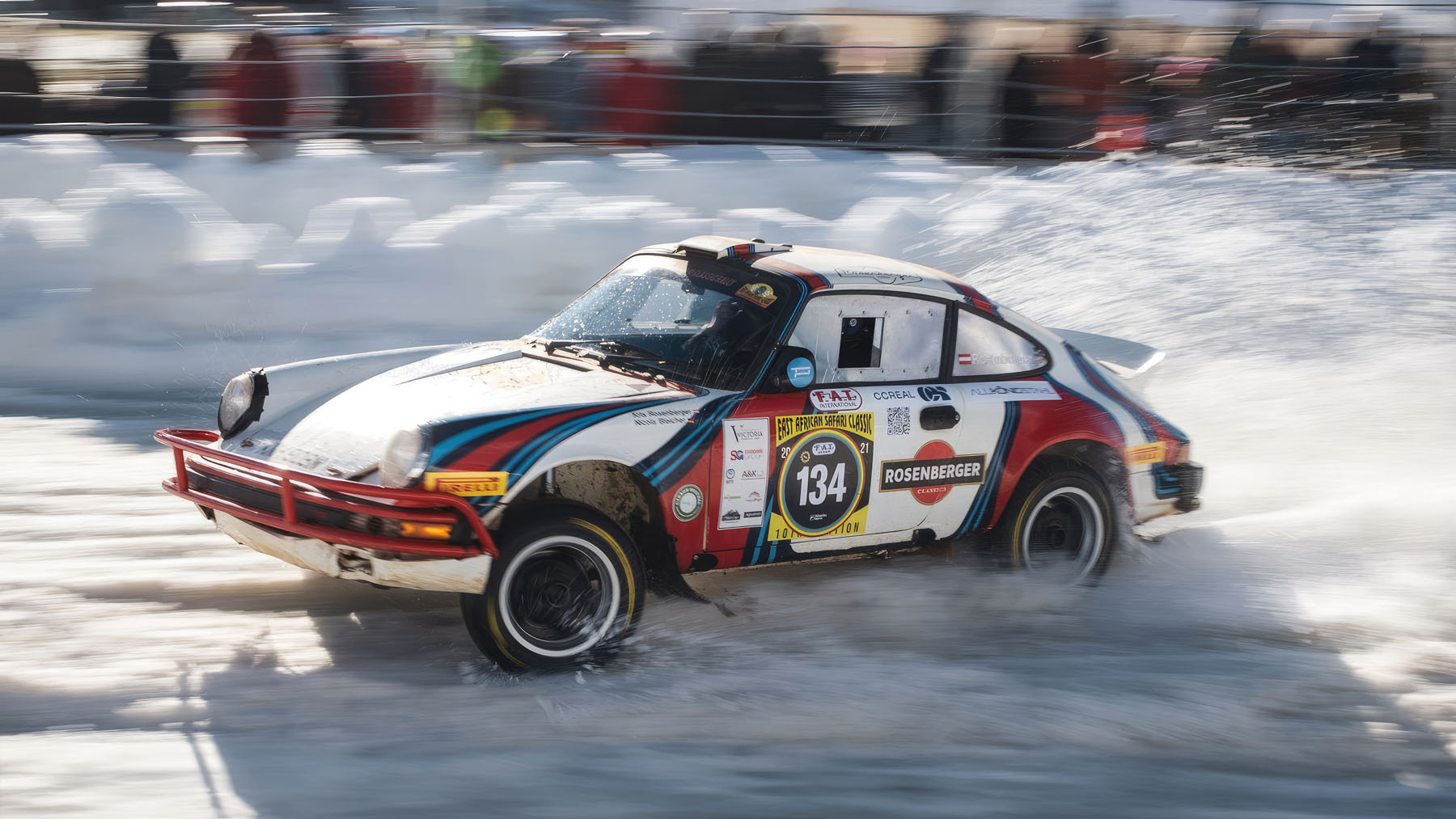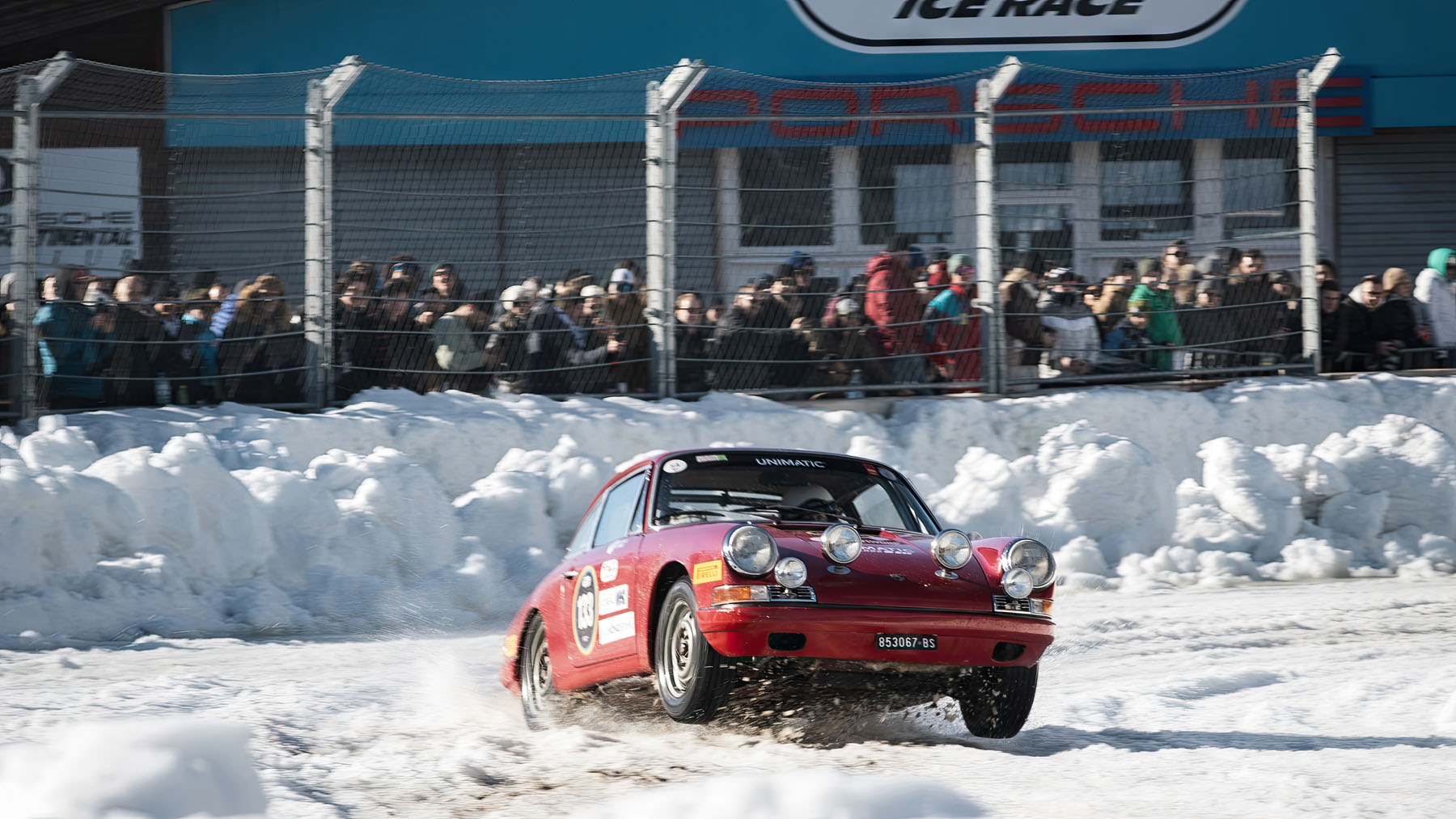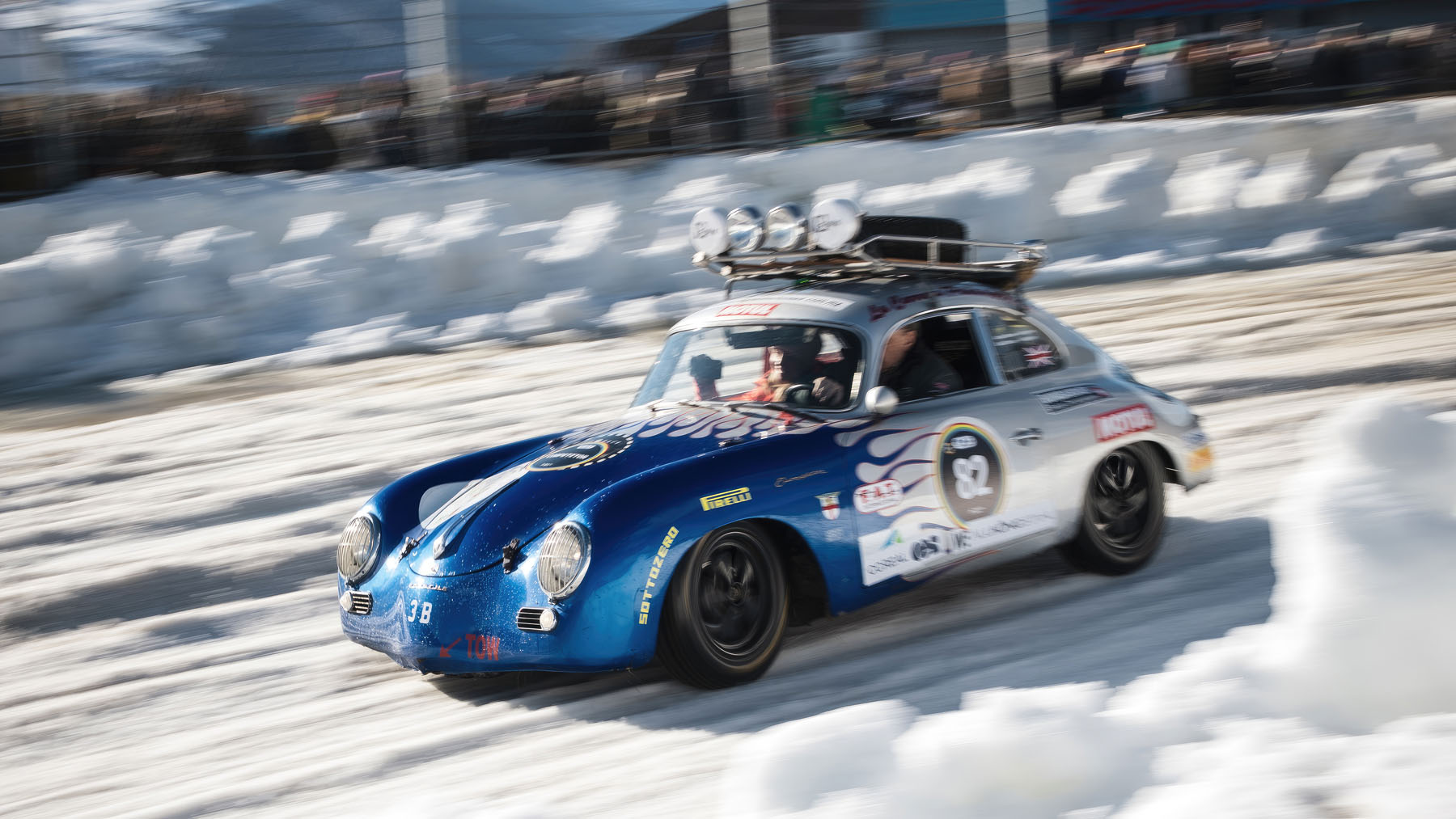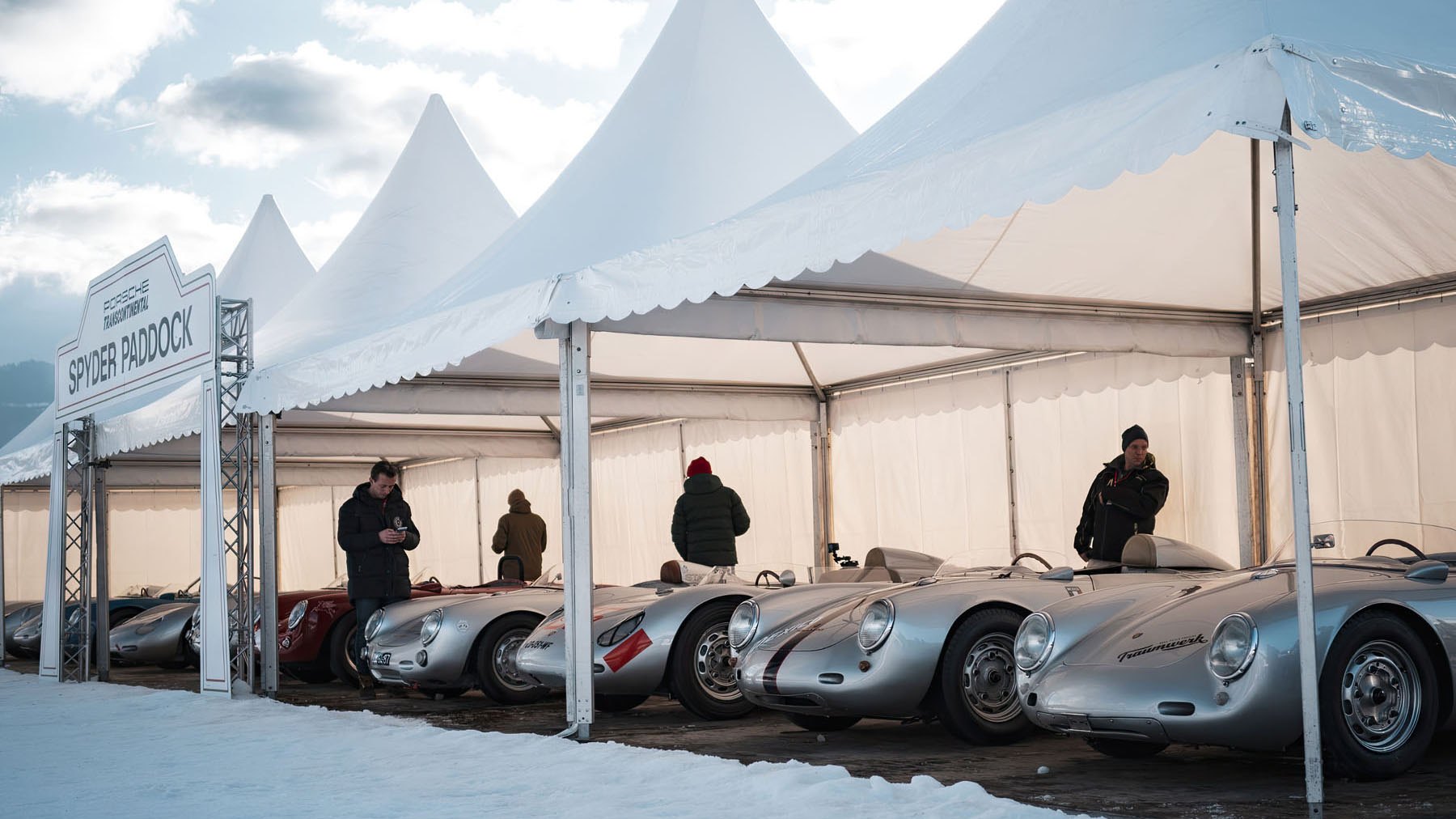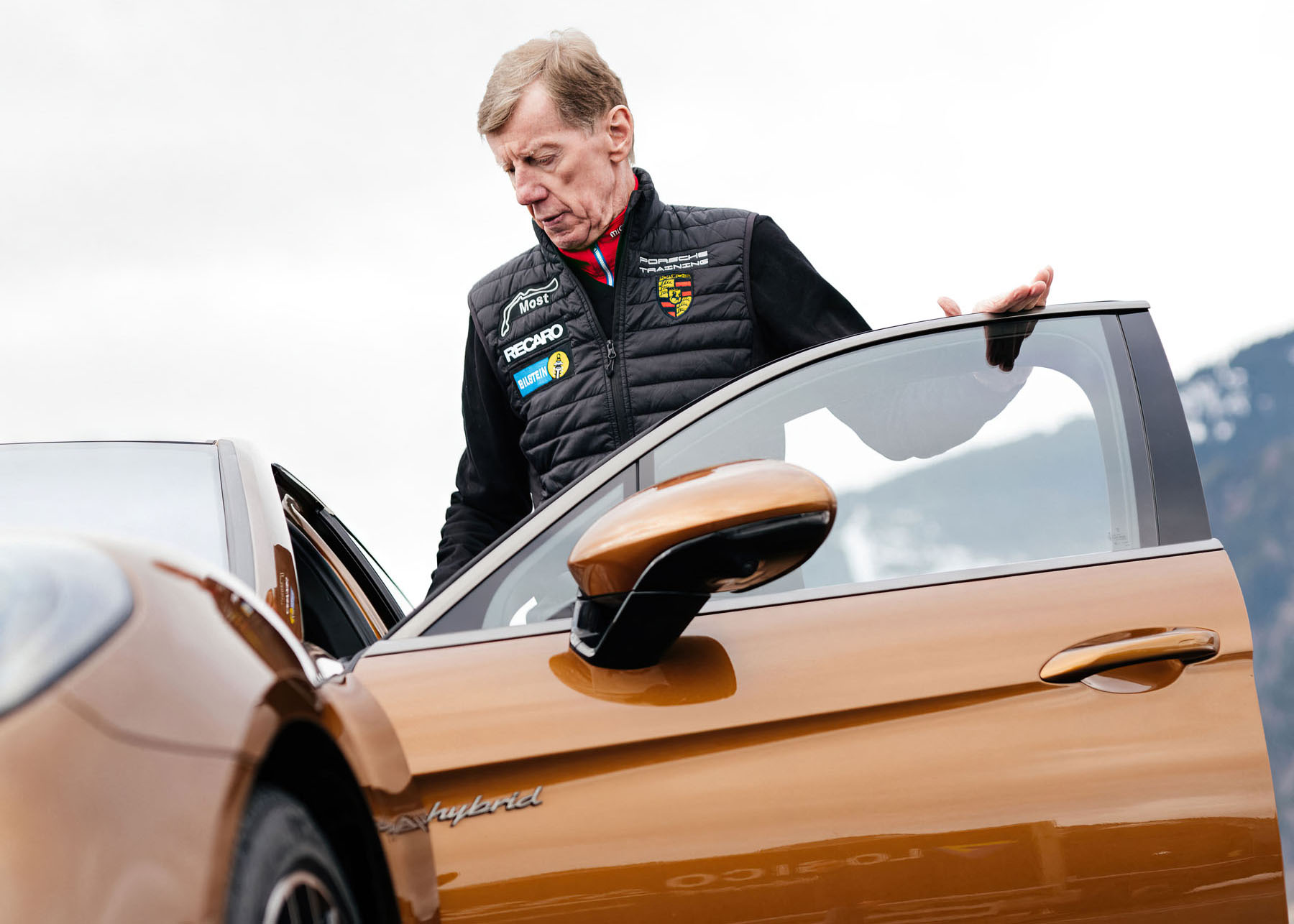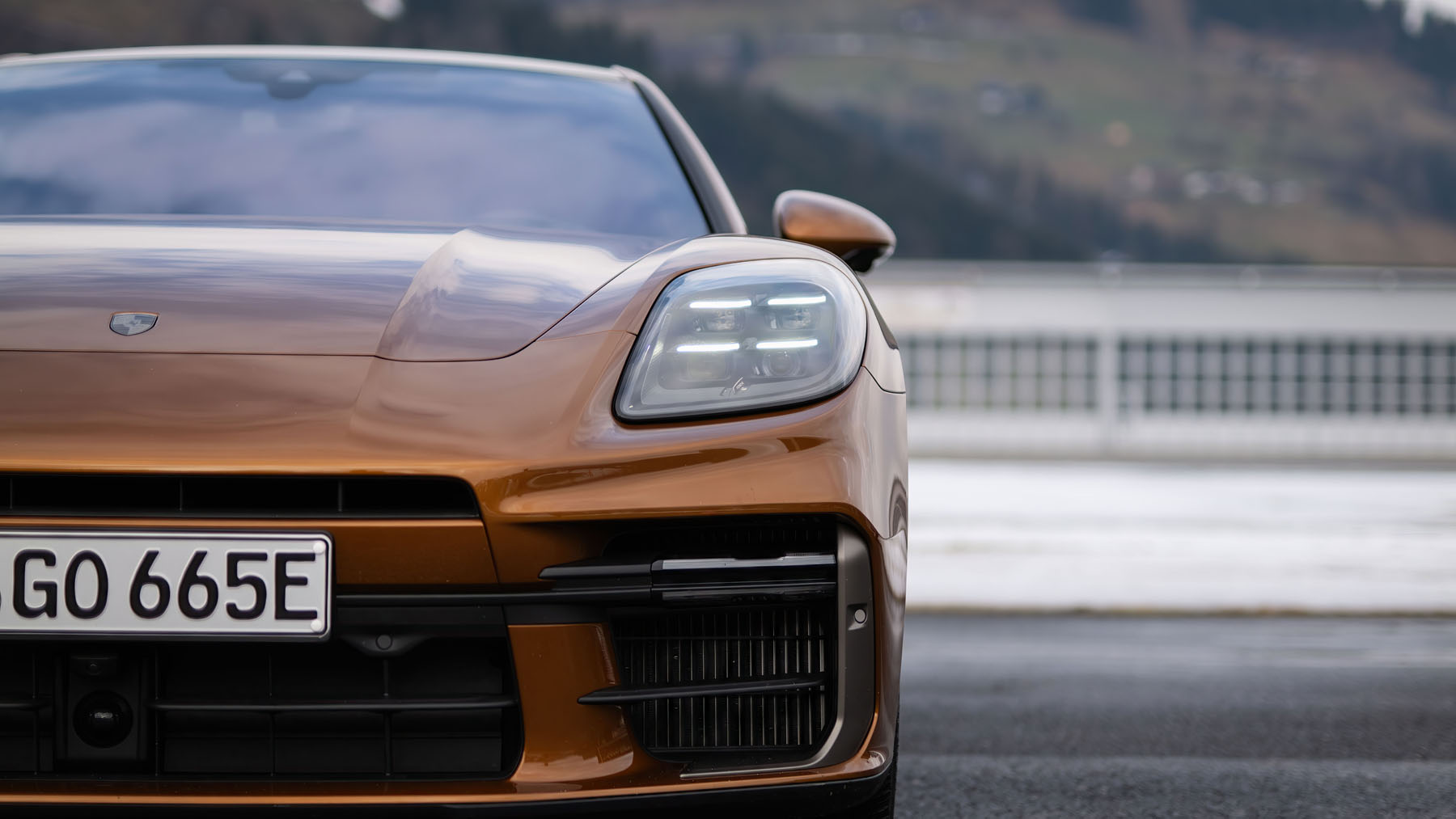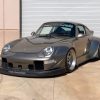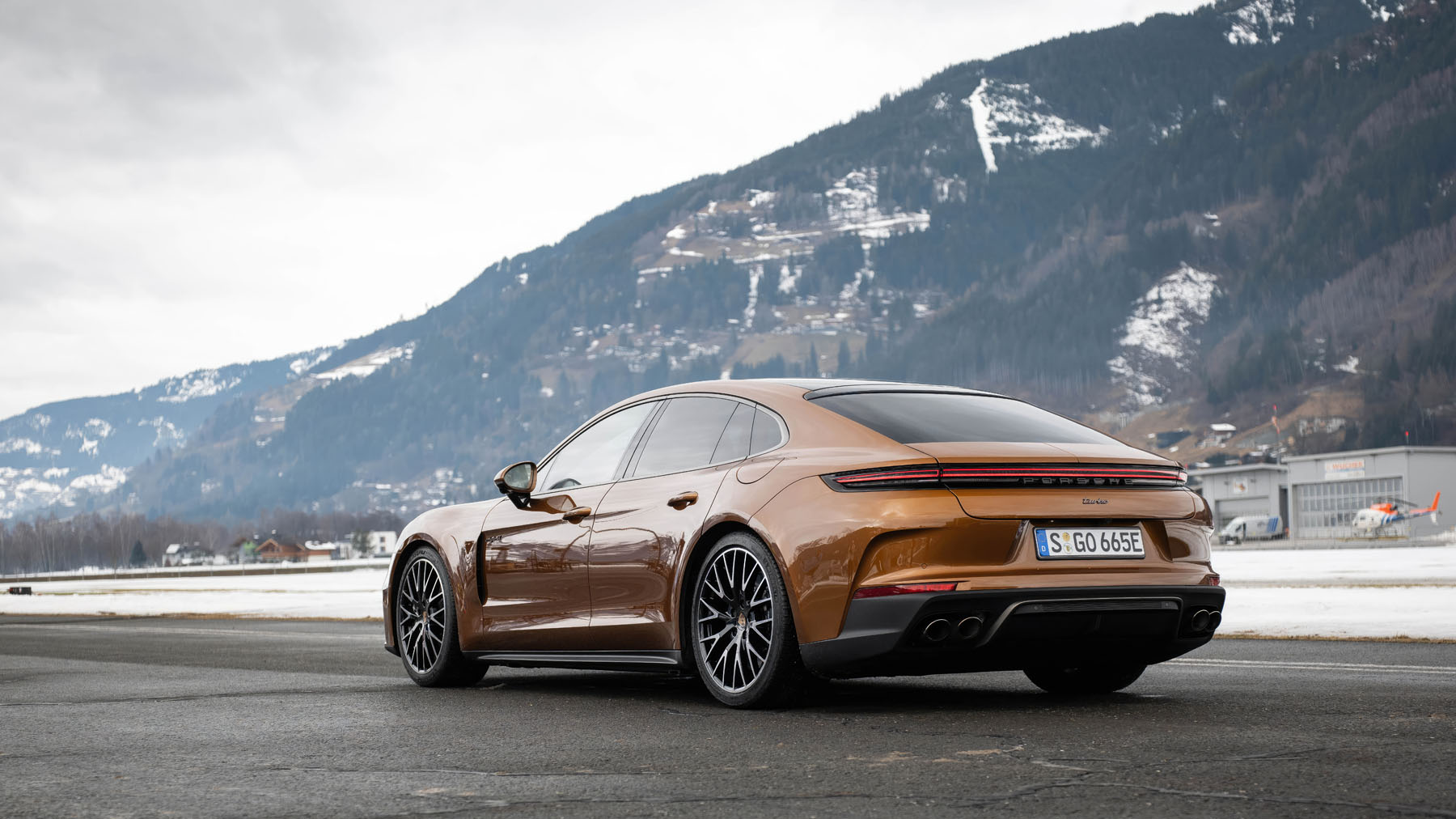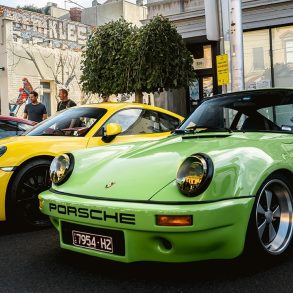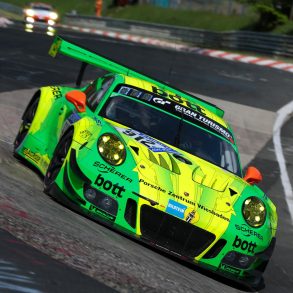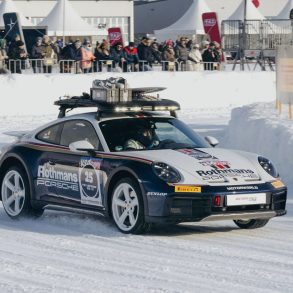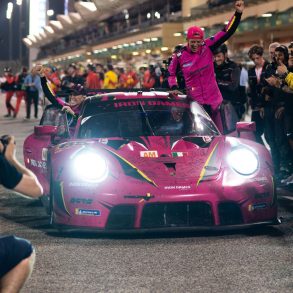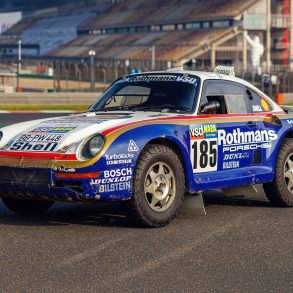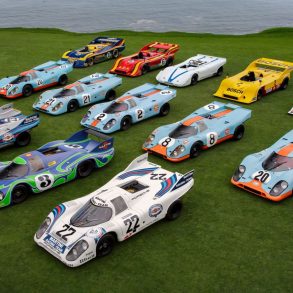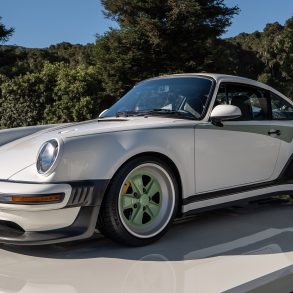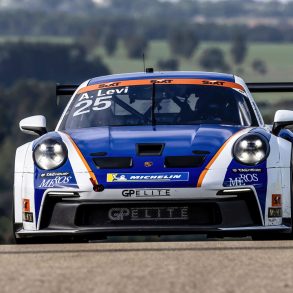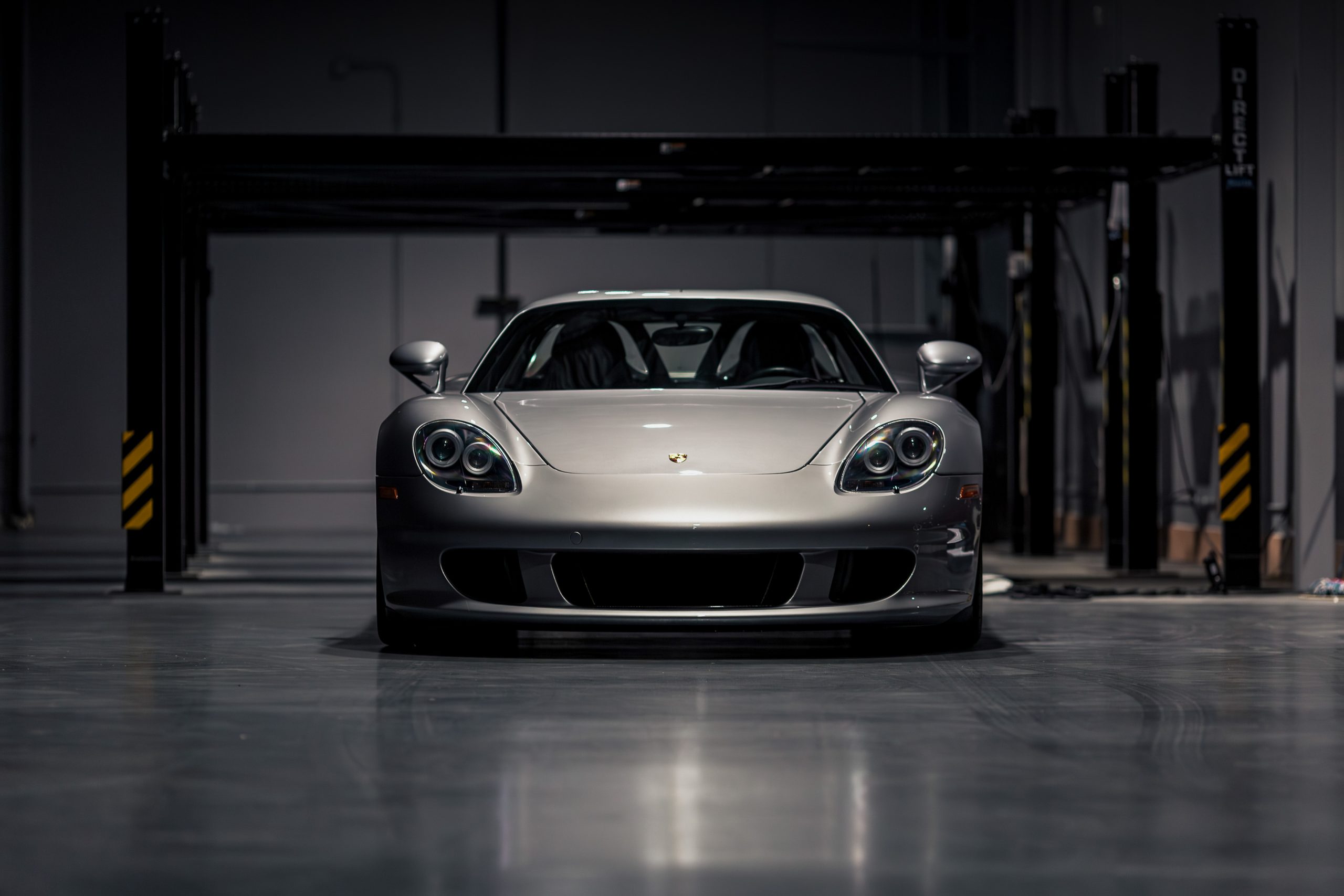Although the weather put a spanner in the works of this year’s Ice Race with heavy rain and temperatures that were far too warm, the participants and the 3,000-plus spectators at the sold-out event didn’t let it spoil the fun. With a broad field of entrants ranging from pre-war racers to WRC competition cars, there was plenty to see. The Porsche Museum also provided great photo opportunities with unique models such as the 550 1500 RS Spyder Carrera Panamericana, the 911 GT1 and a 911 GT3 R racing car.
The F.A.T. Ice Race in Zell am See is a tribute to the legendary international motorbike and car races that once took place on the frozen Lake Zell. Since its rebirth in 2019, the event has become a real highlight of the motorsport calendar, reviving the fascinating spectacle of ice racing. History and revival: The first of the modern-day events took place from 19 to 20 January 2019 on the ice oval of the old airfield in Zell am See, initiated by Ferdinand Porsche, Vinzenz Greger and Constantin Klein.
VIPs on hand
Notable participants: Since then, the event has attracted numerous motorsport stars and celebrities. In 2024, personalities such as two-time World Rally Champion Walter Röhrl, racing legend Hans-Joachim Stuck, former Formula 1 driver Mark Webber, former ski racer Aksel Lund Svindal and Dr Wolfgang Porsche, Chairman of the Supervisory Board of Porsche AG, took part.
Walter Röhrl, Porsche Brand Ambassador
Two-time World Rally Champion Walter Röhrl meets the new Porsche Panamera for the first time in Zell am See, Austria. He’s particularly fond of the active suspension, which opens up new dimensions in terms of driving dynamics. “The advantage of the Panamera has always been that you could feel like you were in a 911,” he says. “The seat position is low, you feel connected to the road, the steering wheel is perfectly placed in your hands. In the new car you also have the headlights nicely positioned and you can use the front wings to set up the car for bends, just like before.”
That brings him right to the heart of the topic. Ever since the first Panamera launched 15 years ago, Röhrl has viewed the bringing of a car with such a wide range of talents to the road as an impressive achievement by the development team. One minute it’s a luxurious sedan for long journeys, the next it’s a capable sports car that can rip through corners with verve. “You have perfect grip at all times.”
Panamera’s new Active Ride suspension
What interests him most about the third generation is the new Porsche Active Ride suspension. The combination of air suspension and active hydraulic dampers is tantamount to a revolution for Röhrl. For the first time in a Panamera, the suspension no longer has to react only in response to the road, but can also actively vary damper pressure. Röhrl describes the high-end technology in striking terms: “You have perfect grip at all times because the wheel load fluctuations are minimal and the tire is therefore always perfectly positioned on the road. Bumps are almost completely compensated for, but despite this – or rather precisely because of it – you still have crystal-clear feedback on the current driving situation.” By dispensing with conventional anti-roll bars and using active dampers, each powered by an individual hydraulic pump, the Porsche Active Ride suspension achieves a balancing act of comfort and control that impresses the rally icon. “Active suspension is the pinnacle of sophistication when it comes to driving dynamics,” he says. “I’d have liked to have had something like that when I was competing, but such technology was unthinkable back then.”
Conventional, hybrid or electric
In addition to the complexity and the degree of control required for such a set-up, the reason for this is the system’s high short-term power requirements. A damper performing up to 13 different actions per second requires a hydraulic system with enough power to foot the bill. The 400 volts of the high-voltage battery in the Porsche Panamera Turbo E-Hybrid are the ideal energy source for the Porsche Active Ride system. For Röhrl, however, the hybrid system is also very exciting for another reason: “The new E-Hybrid generation has made a huge leap forward. With a range of around 90 kilometers, everyday driving is practically always electric. Whether you’re traveling to the shops, to the gym, or to work.”
When asked which drive type he would choose between conventional, hybrid or electric, Röhrl, who hails from the German city of Regensburg, answers with an intriguing comparison: “In rallying, there is no ideal line, no one path that gets you to the finish line most quickly. There are many different driving styles that can lead to the same result in the end. And that’s exactly why I think Porsche’s broad development approach is important and right. All-electric, hybrid with an electric range suitable for everyday use or a classic combustion engine fueled with eFuels – for me, it’s not either-or. There is a sensible use for every model.”
Röhrl is also pleased at the prospect that sustainable and synthetically produced fuels could be used in the future to keep his own small collection of classic cars on the move. “The Spyder RS and Panamera Turbo E-Hybrid that are being used by the Porsche team here in Zell am See at the F.A.T. Ice Race are all already fueled with eFuel. Every participating car could drive with it, and events like this could continue to convey the exhilaration that cars and motorsports exude in the future. And that’s what it’s all about; the pleasure of it. Wonderful moments together.”


